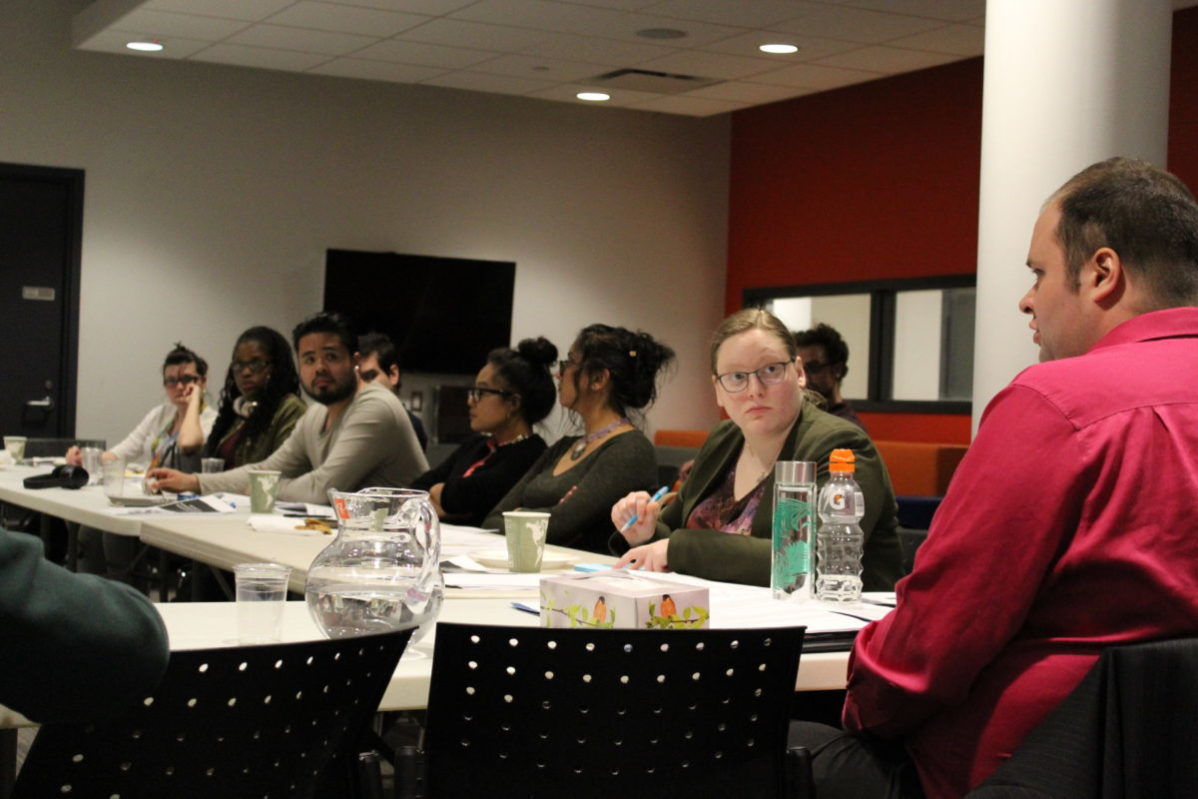Report warns that SA’s bylaws are too sparse to run fall byelections
At an otherwise perfunctory Student Association (SA) board of directors meeting, the report of chief returning officer (CRO) Charles Wilson dominated the agenda.
On April 24, Wilson presented a comprehensive 37-page document regarding the SA’s 2017 spring election. The SA funds The Dialog.
Divided into two segments, part one’s summation of the election took a back seat to the 18 recommendations included in part two, a retrospective report entitled “Ensuring the Safeguard, Strengthening the Foundations.”
The recommendations did not shy away from fundamental changes to the SA’s electoral procedure. Aside from holding elections earlier in the 2017-18 academic year, ideas ranged from a new electoral discipline system to the implementation of electronic voting, beginning with the upcoming fall election.
“It is the opinion of this report that the polling stations themselves posed a significant barrier to any member with a disability,” stated the document’s section on accessibility during the elections.
The report advocated for a third-party company to conduct online elections as it would, “allow members to vote from any location, using accessible software that they are acquainted with and have adjusted to their particular needs.”
While the board voted to accept the CRO’s report, this did not constitute an endorsement. Director of education Tiffany White spoke highly of the recommendations, but cautioned the board will need time over the summer to explore their options, especially the “huge undertaking” of online voting.
“One of the issues that I’m really concerned about (with online voting) is it kind of cuts down on the need for student jobs,” said White. “And one of the things we pride ourselves on as a student union is being able to provide jobs for students and making sure that they’re able to make an income.”
For White, increasing political engagement among the students is a significant focus moving forward.
“As we saw with the CRO report, there’s still low voter turnout, there’s still low engagement and while it’s nice for students to want to go to parties, we also want them to be engaged on the more political side and the more important aspects of the organization,” said White.
Without online voting, the report presented increased voter turnout as potentially troublesome given the resources currently available. “Should we have had even 7-10 per cent voter turnout it would have been beyond the capacity of election staff to count in a quick and efficient manner,” the report said. The SA’s 2017 spring election saw 1,362 ballots cast, a voter turnout of 6.54 per cent.
To help bolster the election services staff, the report recommended the hiring of a third deputy returning officer (DRO) or poll supervisor, provision of monthly Metropasses for the CRO and DROs and a lockable office and drawers.
In light of poster issues during the elections, detailed poster guidelines and the dispensing of approved tape to candidates were also covered in recommendations nine and 10, respectively.
The report’s final recommendation was put forward as its most pressing. Penned by DRO Daniel Gladstone, recommendation #18 presented, “a series of election-related bylaws and articles of a potential election code.”
Gladstone told those present that “the last revision to the bylaws cut out the vast majority of elections-related materials, and as we stand right now, there’s currently not enough in the bylaws to actually run an election.” The matter’s urgency was echoed at the meeting by Rosalyn Miller, equity and advocacy manager, as well as by Wilson after the fact.
“You’re going to have an election in the fall, you’re going to elect a lot of members in that fall election, and I definitely hope that they’re not going by the seat of their pants in that election and that there’s a comprehensive procedure laid out,” Wilson said.
With files from Steve Cornwell



